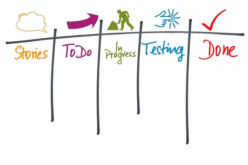Luckily, by leveraging advanced technologies and strategic approaches, you can ensure that your sales data works for you, transforming raw numbers into actionable insights.
Today, SayEducate explores key strategies to enhance your organization’s sales and revenue tracking systems, ensuring you’re equipped to make informed decisions that drive growth.
Harness the Power of CRM Software
Integrate Customer Relationship Management (CRM) software that fits seamlessly with your sales processes. A robust CRM system is instrumental in tracking all customer interactions and centralizing revenue-related data. This integration allows you to maintain detailed customer profiles, which can enhance customer service and identify sales opportunities, thereby increasing conversion rates.
By having all customer information accessible in one place, your team can provide personalized experiences that potentially boost customer loyalty and revenue.
Embrace Real-Time Data Dashboards
Utilize real-time data dashboards to gain instant access to sales figures, enabling rapid decision-making and timely responses to market changes. These dashboards can display up-to-the-minute insights that help your team react to consumer behavior trends, promotional campaign results, and other critical sales drivers.
The ability to monitor live data not only helps in adjusting strategies quickly but also in maintaining a pulse on your organization’s financial health.
Streamline with Document Management
Implement a document management system to streamline the storage and security of your sales data, ensuring that everything from client contracts to sales reports is organized and readily accessible. The pdf to excel transformation simplifies the manipulation and analysis of tabular data, making it more adaptable for your needs.
Once you’ve made the necessary edits in Excel, you can convert the file back to PDF to uphold the integrity and distribution standards of your business documents.
Opting for Mobile Accessibility
Incorporate mobile-friendly tools to enable your sales teams to update and access data from anywhere, which proves indispensable for remote or traveling team members. Mobile accessibility ensures that your staff can enter data on-the-go, access customer information before meetings, and update deals in real-time, directly from their smartphones or tablets.
This flexibility can significantly enhance productivity and ensure continuous data flow, which is critical for timely analytics and decision-making.
Optimize Data Visualization
Data visualization tools such as charts and graphs are crucial for making complex data more digestible. By visualizing sales performance and revenue metrics, your team can quickly grasp essential insights without wading through spreadsheets of raw data.
Effective visualization aids in communicating the success of different products or campaigns and can highlight areas needing improvement, facilitating more strategic planning and resource allocation.
Automate Data Entry
Automate the entry of sales data to reduce manual errors and free up valuable time for your team to focus on more strategic activities. Automation tools can sync data from various customer transactions into your system in real time, ensuring that your sales records are always up-to-date and accurate.
This automation not only minimizes the likelihood of errors but also enhances the efficiency of your sales processes.
Set Clear Key Performance Indicators
Define clear Key Performance Indicators (KPIs) like average revenue per user (ARPU) or customer acquisition cost (CAC) to track the effectiveness of your sales strategies. These metrics provide concrete goals that help gauge the success of your initiatives and inform future strategies.
Regularly reviewing these KPIs can help maintain focus on what drives revenue and adjust tactics as market conditions evolve.
other valuable tips from our business blog (new win):
When Is The Best Time To Invest in a CRM Solution for Your Business?
What Small Businesses Need to Know About Information Technology
Leverage Predictive Analytics
Utilize predictive analytics to anticipate future revenue trends and adjust your strategies proactively. This approach uses historical data to forecast future sales, helping you to identify potential opportunities and challenges before they fully emerge. By incorporating predictive analytics, you can enhance your forecasting accuracy and optimize resource allocation to areas with the highest expected return.
By embracing these cutting-edge strategies and tools, you can elevate your organization’s sales and revenue tracking systems beyond simple data collection. This transformation will turn them into powerful catalysts for growth.
These innovations allow you to not just keep up with but actively shape the evolving business landscape. By doing so, you ensure your organization’s enduring success and resilience in a fiercely competitive market.
Empower yourself with practical tips and expert advice – visit SayEducate today!
Image Credit: by envato.com
end of post … please share it!
end of post idea for home improvement
view and analyze home improvement ideas at our LetsRenovate center
Helpful article? Leave us a quick comment below.
And please give this article a rating and/or share it within your social networks.













